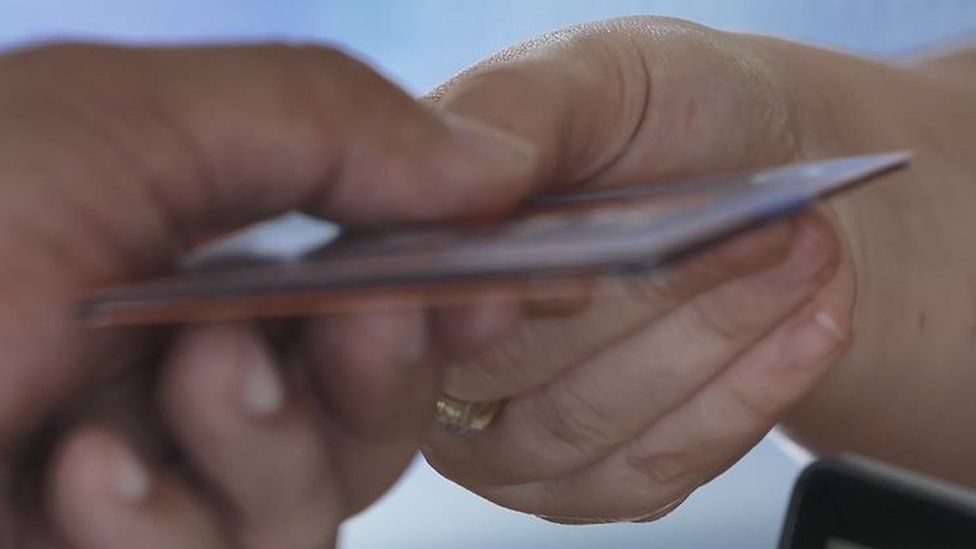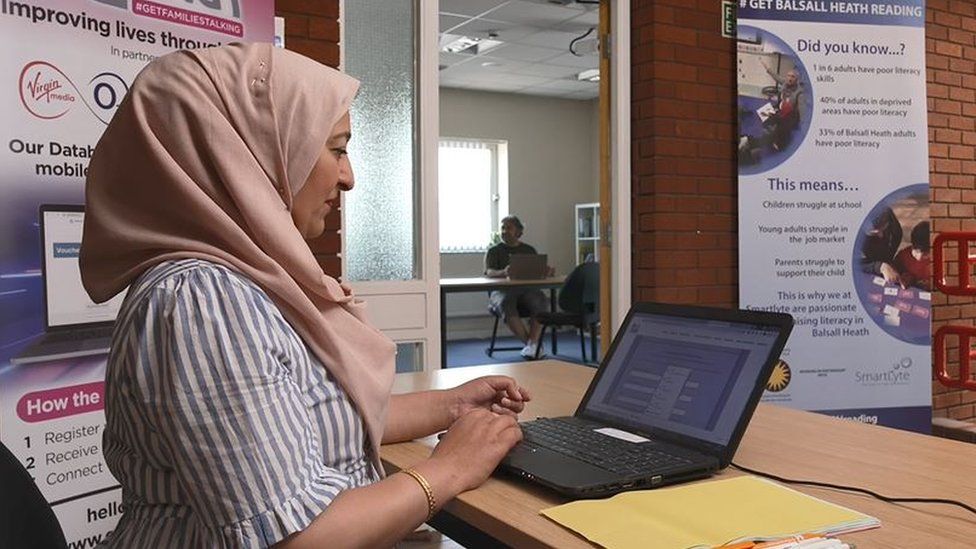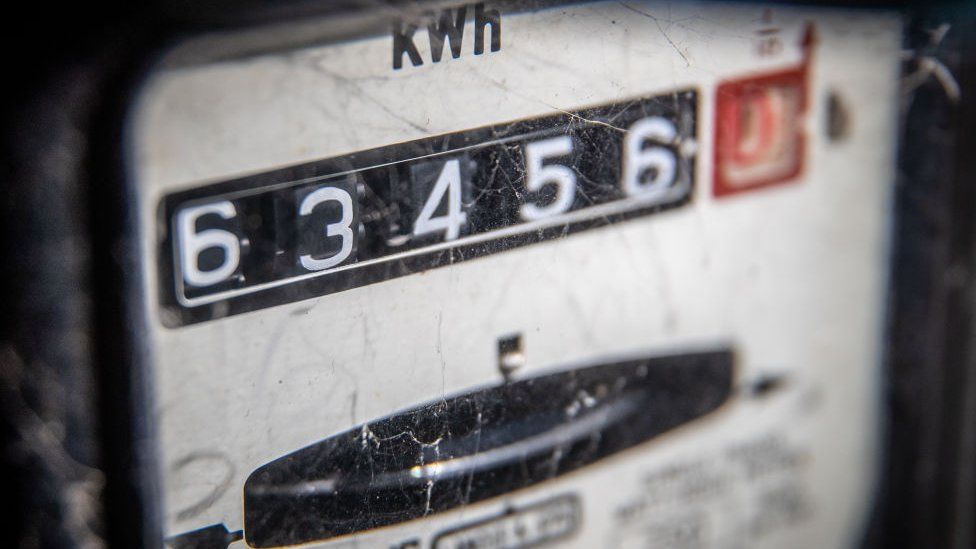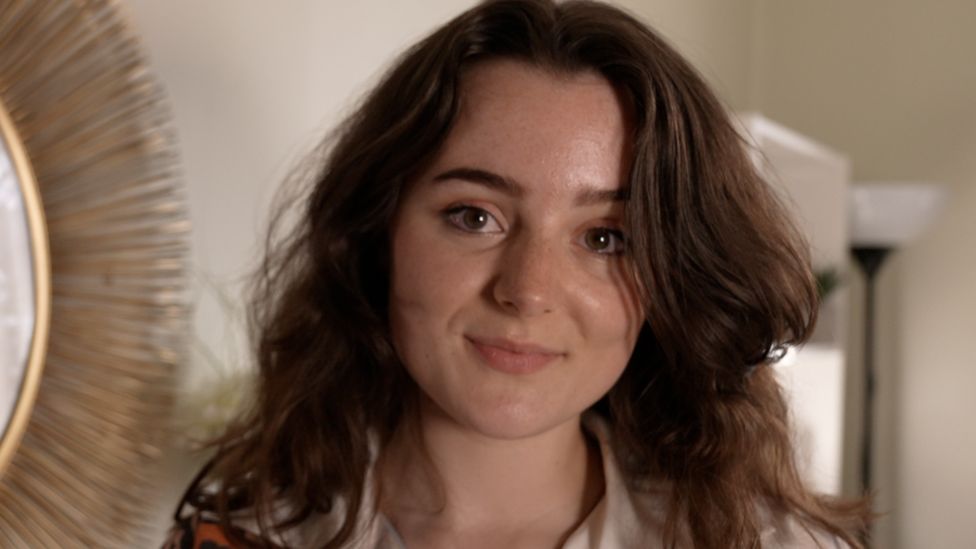Cost of living: Inside the ‘foodbank’ for data
 NAtional Databank
NAtional DatabankWith inflation rising to record levels, many people are facing a hard choice: either pay for online access or use the money for essentials like food or heating. BBC Technology reporter Chris Vallance hears from users of one service designed to combat data poverty.
As prices have risen, Lewa and her family have needed to make savings – she cut back on food but also data: “Sometimes I would share my internet with my neighbour using her internet,” she says.
Money was scarce even before the cost of living crisis: “I lost my husband three years ago. And financially everything became really hard. I’ve been struggling with three kids, all at different stages. One of them is eight, one is 12 and one of them’s 19.
“I remember my son used to go to do his homework at the library. And he he was spending so much time there just because of the internet.”
Lewa – who did not wish the BBC to use her last name – says many people she knows face similar choices, but she has now found help.
The National Databank, an organisation founded by Virgin Media O2 and digital inclusion charity the Good Things Foundation, describes itself as like a foodbank – but for free mobile data, texts and calls.
A donation from Virgin Media O2 – timed to coincide with the databank’s first anniversary – means people can now get 20GB of data per month.

About 400 community organisations and groups that work with the Good Things Foundation, can request donations of mobile data – in the form of SIM cards or O2 vouchers – from the databank for the people they support.
Lewa told me that without this help she doesn’t know how she would have been able to afford data.
Hafsha Dadabhai Shaikh, who works to help people access free data from the databank, says Lewa’s story is typical: “People out there are making those choices between ‘do I have enough money to feed myself and my family this month?…and do I have enough money left over to put in the kitty to buy some data’?”
She says data is essential: “Families are having to go online to see their GPs, order prescriptions, make financial choices as well. Some of the big supermarkets, they all have online loyalty cards, and you need to go online to find the better deals.”
Lewa agrees data is essential, as managing Universal Credit, doctor appointments and prescriptions are all most easily accessed via the internet. Her eldest son recently found a job, and that was through the internet.
Price hikes
The general pinch on people’s finances as food and energy costs increase, has also fed into big rises in inflation-linked bills from many of the big telecommunications firms.

Some mobile and broadband packages linked to inflation have seen mid-contract increases of as much as 11%, according to price comparison site Uswitch – although these increases only affect some customers. For others, experts say, bills have remained fairly stable.
Ofcom has previously estimated that 1.1 million households are “struggling to afford their home broadband service”. And a recent survey of 4,000 adults on low incomes, by the Joseph Rowntree Foundation, suggested that 7% are in arrears on their internet bills, owing an average of £171.
At a meeting last month at Number 10, attended by the culture secretary Nadine Dorries and the heads of the big broadband and mobile firms, the government says it secured “strong commitments from broadband and mobile companies to help families worried about bills to stay connected”.
Mark Jackson of ISPReview– a news site which covers internet connectivity – said of the pledges: “None of this seems particularly new, with most of those same providers already saying they were doing much or all of this”.
The government maintains its negotiations have resulted in a range of social tariffs available “across 99 per cent of the country”.
Social tariffs
Social tariffs – low-cost deals which most firms offer to low-income households – can significantly reduce bills.
But in a letter to broadband suppliers in April, Ms Dorries noted that only 1-2% of Universal Credit claimants take up social tariffs. She called on firms to do more to promote them.
Back at the Databank, Lewa hadn’t heard of social tariffs. Ms Dadabhai Shaikh agreed they are not well known. She speculates that “people don’t know about them because most of this information is probably online”.
In fact, communications regulator Ofcom does maintain an online list of firms offering social tariffs – some of the big firms would prefer to be told if a customer is claiming benefits, so these tariffs can be offered automatically.




